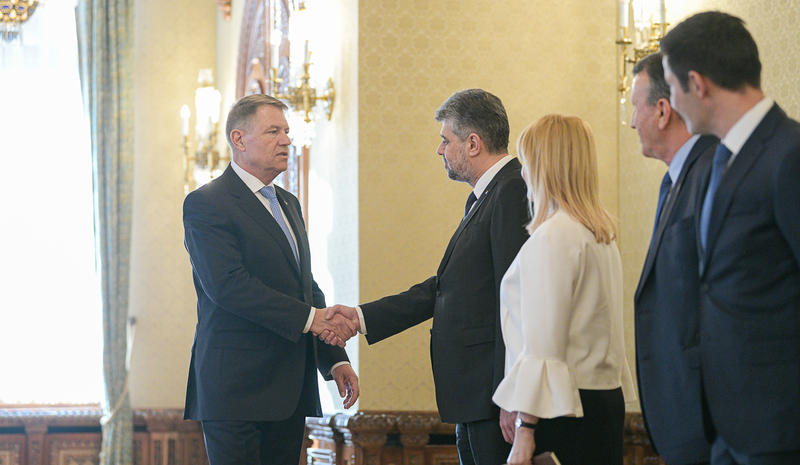Romanian newspapers on Thursday report that Danube just got a little stickier as a 50 km-long spill advances down the river. That unexpected troubles abound as Romania prepares to join the EU as the country is not only a source of, but also a target for immigrants. That bribery is still rife in certain circles and that it does not take much to compare Romania with Africa.
Cotidianul reports that the oil spill that advances down the Danube for several days now is 50 kilometers long and 300 meters wide. “A present from the Serbs”, it is the result of a pipeline fissure that allowed hundreds of tons of oil from the Prahovo, Serbia oil terminal to leak into Danube.
Romania has announced it would ask for compensations from Serbia in court once the damage is properly evaluated.
Much of the area currently crossed by the oil spill was the scenery of extensive floods until half a month ago. According to Jurnalul National, much of the hydro-electric works affected by the spring floods and the six waves of floods last year, there and in other parts of the country, were only partially rebuilt.
That comes as total flood damages at hydro-electric works amount to some 270 million euro and Romania is not ready to cope with a possibly unexpected new wave of rising waters.
Speaking of environmental issues, Adevarul reports that Romania is compared to Africa in a documentary movie the newspaper says is aimed at supporting the case of Rosia Montana Gold Corporation, the Canadian company planning to start gold mining operations in the Apuseni Mountains in West Romania.
The film, produced by two British journalists, is aimed at sparking controversy and starting a debate on how much prejudice environmentalists may bring to a country. But until then, the newspaper considers, it brings prejudice to the image of Romania as the message of the trailer suggests “the Canadians will pull Romania out of Africa”.
Elsewhere in the newspapers, Jurnalul National quotes a study by social research institute CURS that shows a Romanian customs officer would receive an average 11,500 euro yearly in bribes. The study says a third of Romanian companies have admitted bribing customs officers in an average 139 times a year.
Gandul quotes another study that argues Romanians are not yet “prepared” to wash their laundry as their EU fellows. The study, published by a professional organization, says Romanians have no idea how to wash clothes properly as they either use to much detergents, overcharge the washing machines or use too hot water.
And another statistic quoted by the same Gandul shows Romanians use six times less toothpaste than normal and change their toothbrushes only once every two-three years instead of one every three months.
Yet again in Gandul, Portugal is seen as the country where only poor Romanian immigrate as average salaries there stay at about 700 euro and laws make it almost impossible for newcomers to obtain an authorization to reside there.
Conditions there, the newspaper reports, made it so that not only unskilled Romanians come to find work there, but also workers from the Moldovan Republic and Ukraine.
Speaking of Moldova, some 300,000 people from the ex-Soviet neighbor of Romania have applied for Romanian citizenship, according to Romanian vice-consul to Chisinau Lucian Stanica, quoted by BBC and Adevarul.
For these people, all that Romanian authorities can promise is that the rules to evaluate their applications will be “flexible”.
Meanwhile, Evenimentul Zilei reports that the elder son of ex-dictator Nicolae Ceausescu, Valentin Ceausescu, managed to win in court the right to receive back all the goods previously held by his brother Nicu, which were confiscated during the 1989 revolution.
The decision, according to the newspaper, means the Bucharest Tribunal where the case was judged implicitly admits the “abusive character” of all investigations Valentin Ceausescu was subjected to over the past 16 years.
And also in Evenimentul Zilei, one unexpected name is listed among people with debts to the bankrupt Bancorex bank, the fall of which sparked a huge crisis in the Romanian financial sector late last decade.
One of Romania’s most reputed singers, Dan Bittman, whose song “A ring as big as my heart” is played at almost every wedding in the country, has received a Bancorex credit “bigger than his heart” of 2.6 million USD, which he has not given back, as the newspaper writes.




















